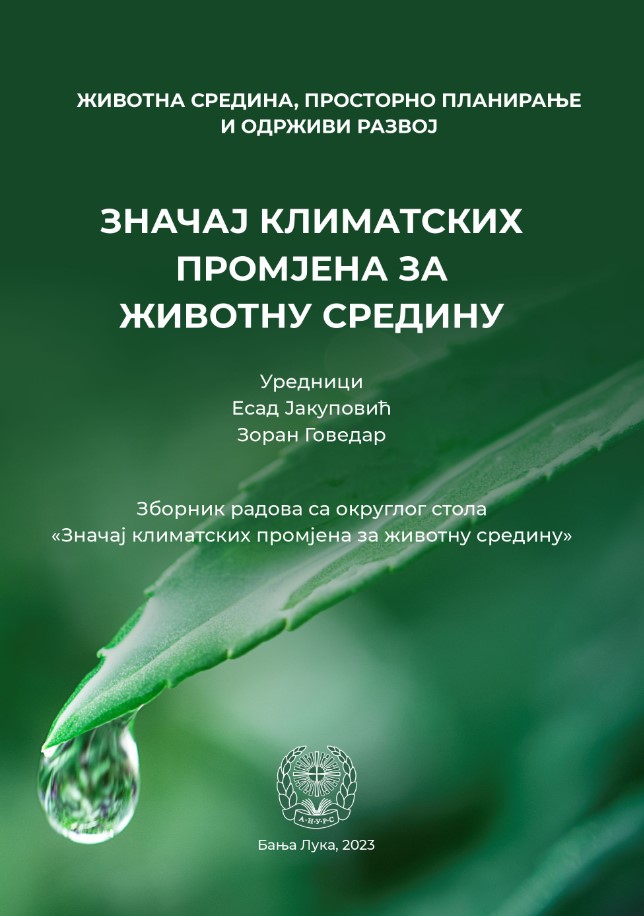Impact of climate changes on water resources in the Republic of Srpska
DOI:
https://doi.org/10.7251/ZSPPOR2301047LKeywords:
Water resources, climate change, average annual flowAbstract
Global warming, in addition to population growth and intensive industrialization, represents one of the most significant pressures on water resources worldwide. The most significant impacts of climate change that directly affect water resources are changes in the distribution of precipitation and snow cover, as well as increased frequency of floods and droughts. Analyzes of average annual temperatures in the last 60 years have shown thatthe trend of increasing average annual airtemperature in the territory of the Republic of Srpska already exists, and precipitation regimes have also changed. The period after the year 2000 is characterized by alternations of very or extremely dry years and years in which extreme floods were recorded. In order to determine the impact of climate change on water resourcesin the Republic of Srpska, a comparison of the average annual and monthly flows of watercourses for the period from 1960 to the present day was made, depending on the available data for individual watercourses. After 1980, rivers Bosna, Vrbas and Vrbanja are characterized by reduced water content. They have lower values of the average annual flow with significantly larger oscillations compared to the previous period. In the northwest of the Republic of Srpska, the situation is different: the rivers Una and Sana have significant variations in their average annual flow, with the fact that comparing the average for twenty-year periods, the river Una has a higher annual flow after 2000, while no change was recorded in the river Sana. Extreme phenomena caused by climate change do not only affect the availability of water and its quantity, but to a considerable extent also lead to the deterioration of water quality. Droughts and floods have catastrophic consequences not only for aquatic biocenoses, but also for entire affected ecosystems.

